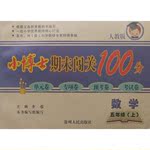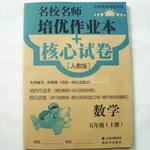题目内容
There once was a little boy who often got angry for unknown reasons and ended up quarreling with his friends. His parents felt 1 but had no idea how to deal with the matter.
In order to help the son, his father gave him a bag of 2 and told him that every time he 3 his temper, he must hammer a nail into the back of the 4
At first the boy felt puzzled at his father's words, but he did as he was told. The first day the little boy had 5 thirty nails into the fence. Over the next few weeks, 6 he learned to control his anger, the number of nails hammered daily 7 reduced. Three months later, the little boy discovered it was easier to 8 his temper than to hammer those nails into the fence. Finally the day came 9 the little boy did not lose his temper at all. He told his father about it and the father suggested that the little boy now 10 one nail each day when he was 11 control his temper. The days passed and the little boy was 12 able to tell his father that all the nails were 13.
The father took his little boy 14 the hand and led him to the fence. He said, “You have done well, my son, but look at the 15 in the fence. The fence will never be the 16.When you say things in anger, they 17 a scar just like this one on the person to whom you lose your temper. You can put a knife in a man and draw it out. 18 many times you say “I'm sorry”, the wound is still there. A mental wound is as bad as a 19 one. The hurt and pain caused by the 20 are deeper than those caused by the hand.
- 1.
- A.patient
- B.angry
- C.desperate
- D.worried
- A.
- 2.
- A.books
- B.tools
- C.nails
- D.suggestions
- A.
- 3.
- A.kept
- B.missed
- C.lost
- D.left
- A.
- 4.
- A.hammer
- B.shoes
- C.fence
- D.hands
- A.
- 5.
- A.discovered
- B.pulled
- C.pushed
- D.driven
- A.
- 6.
- A.as
- B.unless
- C.till
- D.although
- A.
- 7.
- A.hardly
- B.possibly
- C.terribly
- D.gradually
- A.
- 8.
- A.catch
- B.lose
- C.break
- D.hold
- A.
- 9.
- A.before
- B.when
- C.after
- D.until
- A.
- 10.
- A.pulled out
- B.pull out
- C.pulled over
- D.pull over
- A.
- 11.
- A.able to
- B.managed to
- C.succeeded to
- D.going to
- A.
- 12.
- A.eagerly
- B.fortunately
- C.hardly
- D.finally
- A.
- 13.
- A.lost
- B.returned
- C.gone
- D.spared
- A.
- 14.
- A.in
- B.of
- C.on
- D.by
- A.
- 15.
- A.nails
- B.cuts
- C.surface
- D.holes
- A.
- 16.
- A.one
- B.same
- C.best
- D.fence
- A.
- 17.
- A.run
- B.leave
- C.lead
- D.remain
- A.
- 18.
- A.No matter
- B.No doubt
- C.How
- D.However
- A.
- 19.
- A.serious
- B.violent
- C.terrible
- D.physical
- A.
- 20.
- A.knife
- B.nail
- C.tongue
- D.hammer
- A.
试题分析:文章介绍了一个男孩容易发脾气,他父亲想了个办法,让儿子生气时,就往篱笆上钉一个钉子。慢慢的儿子学会控制自己的脾气了。而且爸爸还用这个办法给儿子讲了一个人生道理,不要去伤害别人,这样会给别人留下抹不去的伤害。
1.考查形容词:A. patient耐心的,B. angry生气的,C. desperate 拼命的,D. worried担心的,孩子无缘无故地发脾气,由常识推断他父母很担心。选D
2.考查名词:A. books 书,B. tools工具,C. nails钉子,D. suggestions建议,从后面的句子:he must hammer a nail into the back of the .可知爸爸给孩子一袋钉子,选C
3.考查动词:A. kept保持,B. missed错过,C. lost丢失,D. left失去,lose one’s temper脾气,和前面的There once was a little boy who often got angry for unknown reasons and ended up quarreling with his friends.一致,选C
4.考查名词:A. hammer锤子,B. shoes鞋子,C. fence篱笆、D. hands手,从后面的句子:The first day the little boy had thirty nails into the fence.可知爸爸让儿子如果发火就用钉子钉在篱笆的后面,选C
5.考查动词:A. discovered发现,B. pulled推迟,C. pushed推,D. driven驱使,drive 敲击,指往篱笆上钉(钉子)。选D
6.考查连词:A. as正如,当…时候,因为,B. unless除非,C. till直到,D. although虽然,因为他懂得怎么控制自己的愤怒,钉到篱笆上的钉子的数量逐渐减少了,选A
7.考查副词:A. hardly几乎不,B. possibly可能,C. terribly可怕,D. gradually逐渐地,钉到篱笆上的钉子的数量逐渐减少了,选D
8.考查动词:A. catch抓,B. lose失去,C. break破坏,D. hold持有,忍住,男孩发现仍住愤怒要比把钉子钉到篱笆上更容易,选D
9.考查连词:A. before在…前面,B. when 当…时候,C. after在…后面,D. until直到,小男孩一点脾气都没有的日子到了,when引导定语从句,修饰the day,选B
10.考查动词短语: pull out拔出, pull over开到一边,男孩的爸爸让他每天拔出一个钉子,用过去时,选B
11.考查词组:A. able to能够,B. managed to设法,C. succeeded to成功,D. going to将要,当他能够控制脾气的时候,和be连用,用able to,manage不能和be动词连用,选A
12.考查副词:A. eagerly渴望,B. fortunately幸运,C. hardly几乎不,D. finally最后,最后儿子说所有的钉子都不见了,因为已经拔出来了。选D
13.考查动词: A. lost失去,B. returned回来,C. gone 不见了,D. spared空闲,儿子说所有的钉子都不见了,选C
14.考查介词:take sb by the hand拉着某人的手,选D
15.考查名词:A. nails钉子,B. cuts割伤,C. surface表面,D. holes洞,父亲对儿子的教育,意义颇深:钉子已经拔除,但是那些洞是无法消除的。选D
16.考查句意:A. one一个,B. same同样,C. best最好,D. fence篱笆,被钉子钉过的篱笆再也不会跟从前一样了。选B
17.考查动词:A. run跑,B. leave离开,留下,C. lead 带领,D. remain仍然,发怒时对别人说的话造成的伤害就像钉钉子留下的洞一样。选B
18.考查词组:A. No matter无论,B. No doubt毫无疑问,C. How怎么D. However无论怎样,如果伤害了别人,怎么说对不起也没用。“No matter how many times...”无论多少次,引导让步状语从句。选D
19.考查形容词:A. serious严肃的,B. violent暴力的,C. terrible可怕的,D. physical物理的,身体的,精神的伤害和身体的一样,选D
20.考查名词:A. knife 刀,B. nail钉子,C. tongue语言,D. hammer锤子,用语言造成的伤害比用手造成的伤害更深,选C
考点:考查人生百味类短文

 小博士期末闯关100分系列答案
小博士期末闯关100分系列答案 名校名师培优作业本加核心试卷系列答案
名校名师培优作业本加核心试卷系列答案
America is a mobile society. Friendships between Americans can be close and real, yet disappear soon if situations change. Neither side feels hurt by this. Both may exchange Christmas greetings for a year or two, perhaps a few letters for a while — then no more. If the same two people meet again by chance, even years later, they pick up the friendship. This can be quite difficult for us Chinese to understand, because friendships between us flower more slowly but then may become lifelong feelings, extending sometimes deeply into both families.
ericans are ready to receive us foreigners at their homes, share their holidays, and their home life. They will enjoy welcoming us and be pleased if we accept their hospitality (好客) easily. Another difficult point for us Chinese to understand Americans is that although they include us warmly in their personal everyday lives, they don’t show their politeness to us if it requires a great deal of time. This is usually the opposite of the practice in our country where we may be generous with our time. Sometimes, we, as hosts, will appear at airports even in the middle of the night to meet a friend. We may take days off to act as guides to our foreign friends. The Americans, however, express their welcome usually at homes, but truly can not manage the time to do a great deal with a visitor outside their daily routine. They will probably expect us to get ourselves from the airport to our own hotel by bus. And they expect that we will phone them from there. Once we arrive at their homes, the welcome will be full, warm and real. We will find ourselves treated hospitably.
For the Americans, it is often considered more friendly to invite a friend to their homes than to go to restaurants, except for purely business matters. So accept their hospitality at home.
【小题1】In which part of a newspaper can this article be found?
| A.Culture. | B.News. | C.Story. | D.Travel. |
| A.Friendships between Americans usually extend deeply into their families. |
| B.Friendships between Americans usually last for all their lives. |
| C.Americans always show their warmth even if they are very busy. |
| D.Americans will continue their friendships again even after a long break. |
| A.weaken | B.develop | C.stretch | D.disappear |
| A.treated hospitably at his home | B.offered a ride to his home |
| C. warmly welcomed at the airport | D.treated to dinner in a restaurant |
| A.friendships between Chinese | B.Americans’ hospitality |
| C.different views of friendship | D.friendships between Americans |
 gone D. dead
gone D. dead